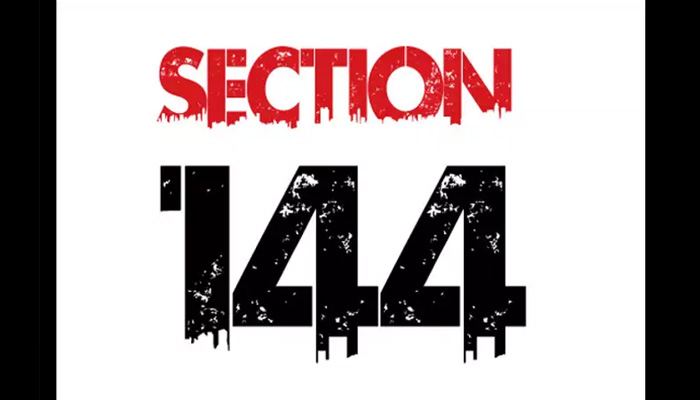TRENDING TAGS :
Section 144: From its importance to violations; Things you need to know!
When there are apprehensions of breach of public peace and order by some people, Section 144 CrPC is put into effect. Under this section, all civilians are barred from carrying of weapons....
Lucknow: Over the past few hours, we came across the news of section 144 being imposed in Srinagar by Jammu and Kashmir government shutting down mobile, broadband internet, and cable TV services. Several state leaders including Omar Abdullah, Mehbooba Mufti, and Sajad Lone were also placed under house arrest.
ALSO READ: MHA put security forces on high alert post Art 370 declaration on J&K
However, not everyone knows what actually does section 144 carry with it. What is the punishment if someone violates Section 144 CrPC and when is it imposed?
Well, here we bring a full stop to all your queries.
WHAT DOES SECTION 144 MEAN?
-When there are apprehensions of breach of public peace and order by some people, Section 144 CrPC is put into effect. Under this section, all civilians are barred from carrying of weapons including lathis, sharp-edged weapons or firearms in public places except for police or paramilitary or security forces.
WHEN IS IT ISSUED?
-It is issued in urgent cases of security threat or riot and bars the assembly of five or more people in an area where it has been imposed. The notification is issued by the District Magistrate of the area. The section also empowers the authorities to block internet access.
ALSO READ: SC to decide on Friday on shifting Unnao rape survivor to Delhi
-No order under this section can remain in force for more than two months. However, if the state government considers it necessary for preventing danger to human life or for preventing a riot, it can extend the impositions under the sections for not more than six months from the date of issuance of the initial order.
WHAT IF ONE VIOLATES IT?
-Any person violating can be booked for “engaging in rioting”. The maximum punishment for such act is three years. Anyone who obstructs the police from breaking the assembly or abets the assembly is also punishable under law.
WHY WAS IT IMPOSED IN JAMMU AND KASHMIR?
-The restrictions in Jammu and Kashmir was followed by Home Minister Amit Shah announcing in Parliament that Article 370, which gave J&K special status and autonomy, has been scrapped following a gazetted order by the President.
-According to an order issued by the government there shall be no movement of public and all educational institutions shall also remain closed. All public movement has been curtailed and educational institutions will remain closed.
-The order has also banned holding any kind of public meeting or rally until the order is withdrawn.
ALSO READ: #Unnaorape: Ex-BJP MLA Sengar, co-accused produced before Delhi court
SECTION 144 CrPC IS DIFFERENT FROM A CURFEW
-Curfew orders are issued in more severe situations where people are instructed to stay indoors for a specific time or period.
-Establishments such as markets, schools, colleges, etc. are ordered to remain shut, and only essential services are allowed to run on prior notice. There is a complete restriction on traffic as well.
-Section 144 of CrPC generally prohibits public gathering.
-Most importantly, if you want to go out from your house during the curfew, you need prior approval from the local police.



